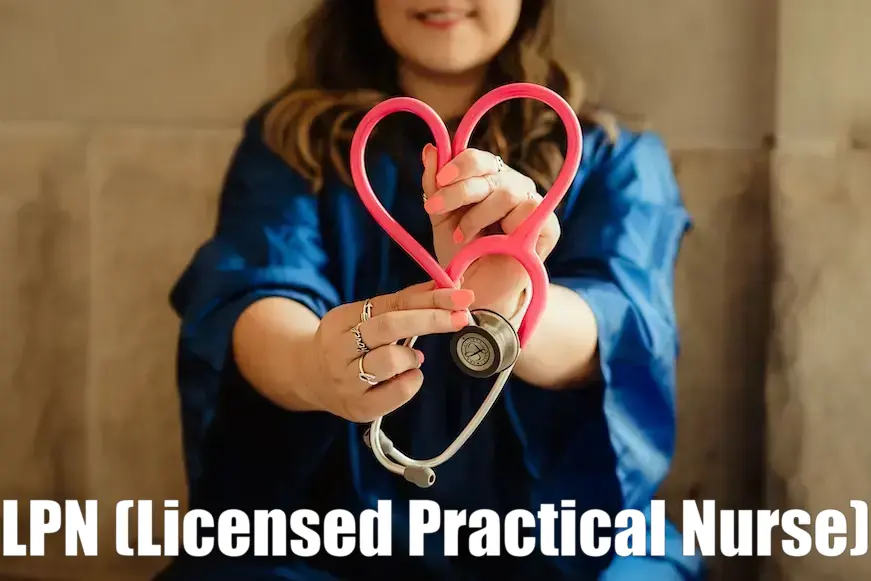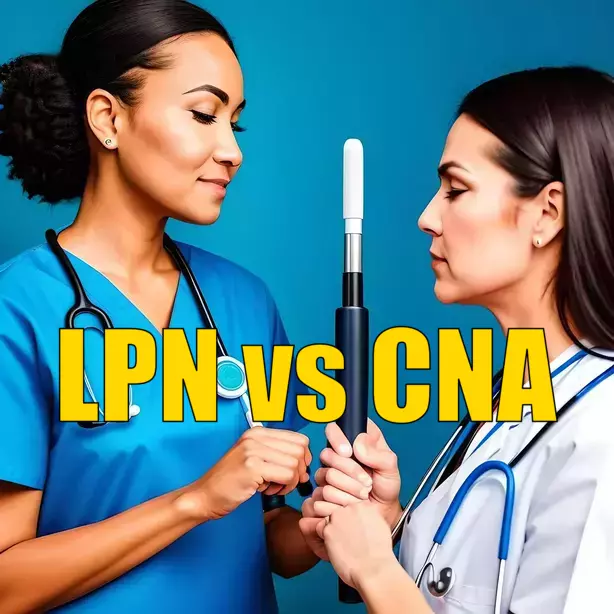Are you thinking about becoming a Licensed Practical Nurse (LPN)?
In this guide, we’ll look at the good things about being an LPN and the not-so-good things.
LPNs play a crucial role in healthcare, helping patients and doctors.

The 6 Good Things about Being an LPN
1. Easy Entry
One great thing about becoming an LPN is that it doesn’t take a long time to start.
LPN programs usually last about 12-18 months. That means you can begin your nursing career relatively quickly.
2. Lots of Jobs
Hospitals and clinics are always looking for skilled healthcare workers like LPNs.
This need for LPNs is growing. In fact, the U.S. Bureau of Labor Statistics (BLS) says there will be even more LPN jobs in the future.
It is projected to grow 9% from 2020 to 2030, which is faster than the average for all occupations
So, if you become an LPN, you’ll have a good chance of finding work.

3. Many Places to Work
As an LPN, you can work in many different places.
You can choose to work in a hospital, clinic, or even help people at home.
This lets you explore different aspects of nursing and find the work setting that suits you best.
4. Hands-On Care
LPNs get to help patients directly.
You’ll learn to take vital signs, give medicine, and offer basic medical care.
LPNs develop strong clinical skills that are valuable in providing quality patient care.
If you enjoy taking care of people, this job is for you.
5. Paths to Advance
You can start as an LPN with a diploma or certificate and go even further in your nursing career.
Many LPNs become Registered Nurses (RNs) with more education. This can lead to more responsibilities and higher pay.
6. Good Pay
While LPN salaries can change depending on where you work, they usually offer a good salary.
According to the government entity BLS, the typical LPN makes around $48,820 every year.
That’s not bad for a job you can get relatively fast.
The 5 Not-So-Good Things about Being an LPN
1. Limited Duties
Compared to RNs, LPNs have a more limited scope of practice. .
They can’t do certain advanced procedures or make big decisions by themselves.
This means you might have less control over your work.
LPNs work under the supervision of RNs or physicians, and their duties focuses on providing basic patient care.
This limitation can affect the level of autonomy and responsibility in the role.
2. Stress and Hard Work
Working as an LPN can be physically and emotionally demanding.
LPNs often have to deal with stress, heavy workloads, and tough cases.
You might need to care for patients with serious illnesses, and that can be emotionally tough.
This stress can lead to burnout.

3. Keep Learning
To keep your LPN license, you need to keep learning and meet the continuing education requirements .
It may involve taking additional courses and staying current with healthcare regulations.
This can take time and effort.
You’ll need to take more classes and keep up with healthcare rules and changes.
4. Weird Hours
LPNs sometimes have to work at strange times, like evenings, nights, and weekends.
It depends on your healthcare setting and where you work.
These hours can make it hard to balance work and personal life.
LPNs should be flexible in their work hours to accommodate the needs of healthcare facilities that operate around the clock.
5. Communication Challenges
Good communication is essential in healthcare.
LPNs need to share information with other healthcare workers, patients, and families.
Clear communication is important for patient safety, but it can be hard sometimes. When conveying information to other healthcare team members, patients, and their families.
FAQs about benefits of a LPN Career
LPNs have a shorter program and can’t do as much as RNs. RNs have more job options and responsibilities.
Yes, LPNs can specialize in areas like pediatrics or critical care with extra training.
Yes, LPN salaries vary by where you live, how much things cost, and how much they need LPNs.
You usually need to finish an LPN program that combines classroom lessons and practice.
Then, you need to pass a test to get your LPN license.
Yes, LPNs can take extra classes and get special certifications to do more things and earn more money.
LPNs need to take more classes and stay up-to-date with healthcare rules to keep their skills sharp.
Some LPNs take bridge programs that make it faster to become an RN.
These programs give LPNs credit for their previous education and experience.
In conclusion, becoming an LPN has its good points, like getting started quickly and having lots of job options.
But there are challenges too, like limited duties and stress.
Before choosing this path, think carefully about what matters most to you and your career goals.
